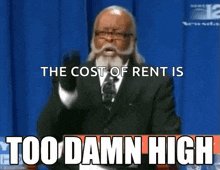- Messages
- 1,102
Hope you are not taking the back and forth the wrong way. I think it's great you have the smarts and wherewithal to do all this. My oldest friend does similar so I understand.This is true but under current law if I hold until my death and pass on to my heirs then they get the stepped up basis which wipes out the depreciation and allows my children to begin depreciating on the same asset again, thereby giving the cash flow of that asset a boost upon inheritance.
But, and I believe you will agree, the financial and other considerations you make in buying a house for pure investment purposes (even so far as inheritance) are much different than those of Jack and Dianne trying to figure out how to buy a little pink house to start a family in. (apologies to JM)

